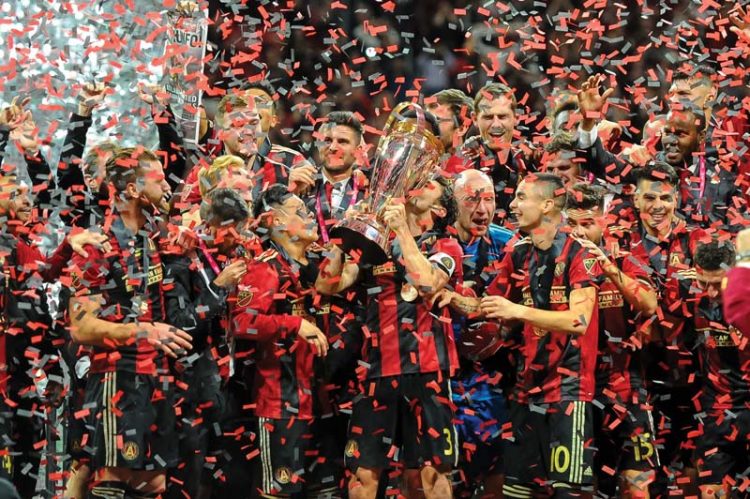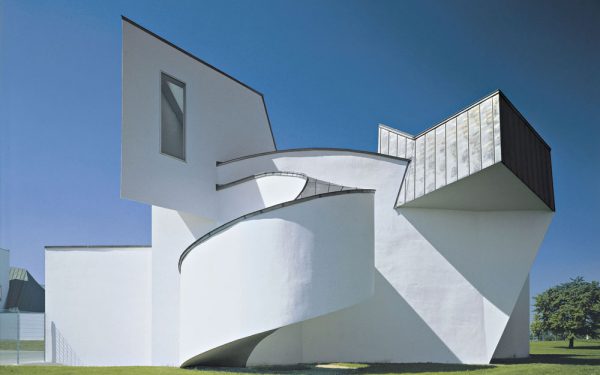It was, in the end, the most unlikely of victories. A team less than two years old, based in a city with no soccer heritage to speak off, winning the Major League Soccer (MLS) Cup. Equally surprising is that it did so with record attendances, a young, multicultural squad and some of the most passionate fans in the division.
Atlanta United’s MLS Cup victory last December is even more impressive when you consider the city’s recent sporting history is one littered with near misses and painful failures. This is a city that hadn’t won anything in any sport since the Atlanta Braves won the 1995 World Series – a gap of 23 years. Only two years ago, the city’s NFL team, the Atlanta Falcons, threw away a 28-3 lead over the New England Patriots in the 2017 Super Bowl. Before that, the Atlanta Braves lost a two game lead in the 1996 World Series. Typical Atlanta, rival fans crowed.
That narrative was rewritten on a freezing December night in front of 73,000 delirious fans. The victory, over the Portland Timbers was, in the end, relatively routine. Atlanta settled any nerves in the 38th minute when star striker Josef Martinez pounced on a sloppy back pass and rounded the Portland keeper. Atlanta sealed victory in the second half when their best player, Miguel Almiron (since moved to Newcastle United in a record US$28 million transfer) converted from a tight angle. Cue bedlam in the stands.
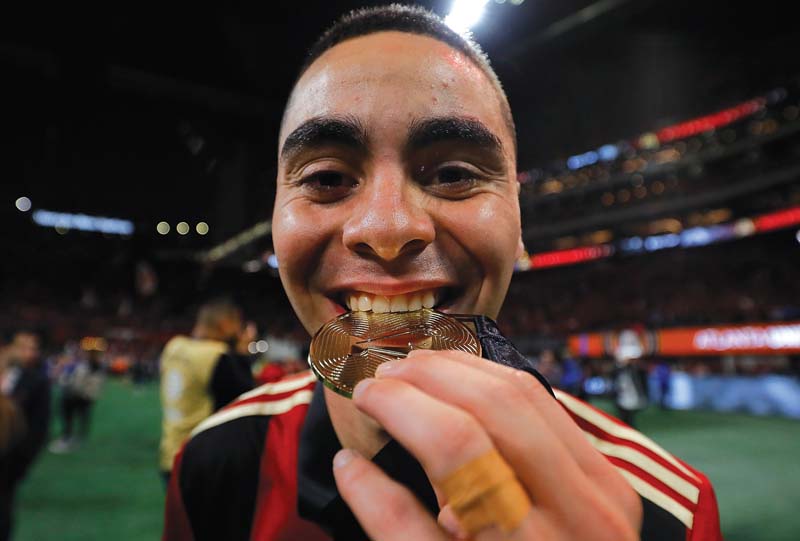
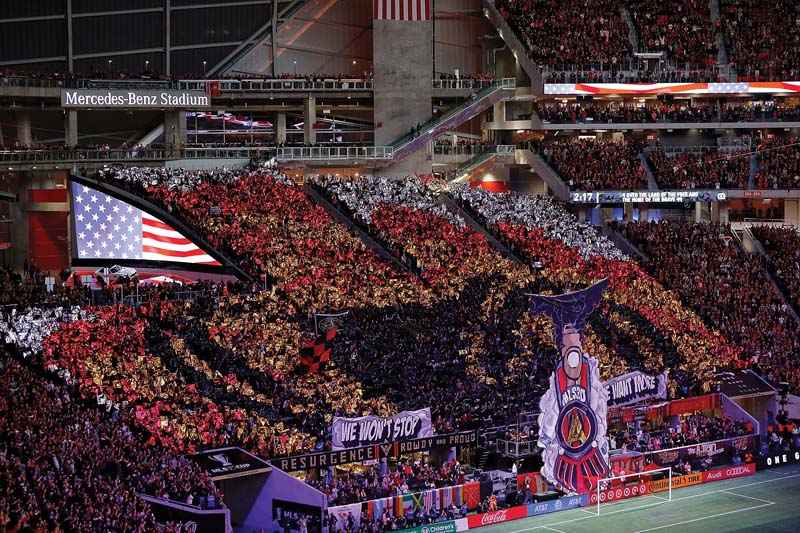
That Atlanta’s victory came as a surprise, isn’t all that surprising. It has always been an overlooked city. A local journalist wrote after the MLS victory: “Will America finally acknowledge Atlanta as the international, world-class city it is?” That remains to be seen.
Atlanta has always prided itself on being different, especially from its neighbours in the South. It was the home of the civil rights movement, billed in the 60s as the “city too busy to hate.” In the 70s, the city pioneered affirmative action in industry, ushering in a new wave of black millionaires. The 90s saw the Olympics put the city on the world map, an South Coast hip hop make waves. In short, not a city where ‘soccer’ – which has largely taken root only among Latino residents – would have a chance to succeed.
Yet Atlanta’s victory was not just one for the city, but for the MLS as a whole. It showed that the league could generate a buzz outside the traditional hot spots of New York and California. Atlanta averaged 53,000 per game last season, a figure most Premier League clubs would kill for. Its final match saw more than 73,000 fans pile into the Mercedes-Benz stadium – to put that in perspective, it’s higher than the attendance at the past four Super Bowls.
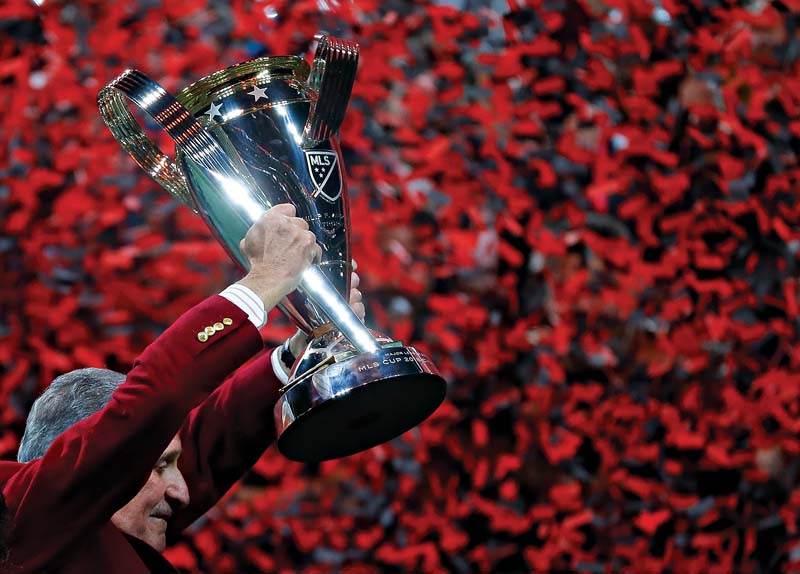
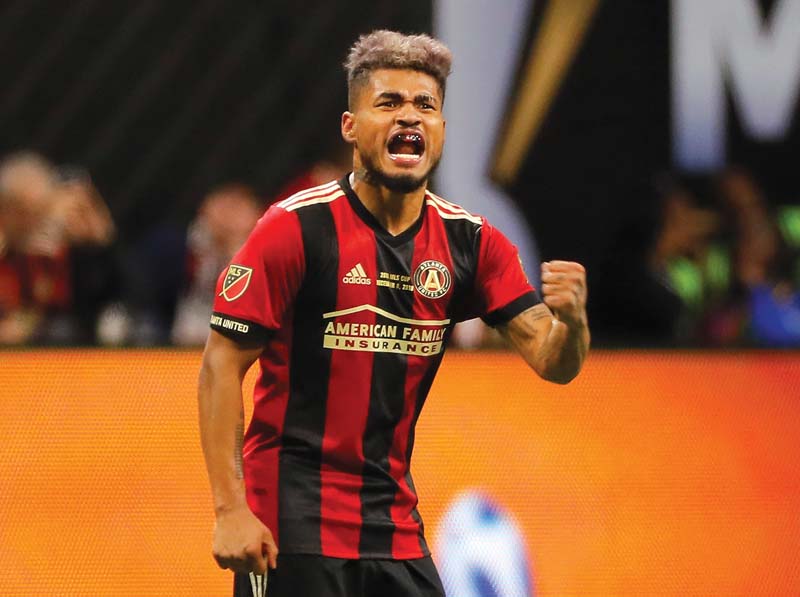
That is reflected in the excitement around the MLS right now. Los Angeles FC became the league’s 23rd team last year, while Cincinnati will join in 2019, followed by Miami and Nashville in 2020. There are as many as 10 other cities, including front-runners Austin, Phoenix, St. Louis, and San Diego looking to join the league.
“Every now and again you have something that happens that shocks you,” the MLS Commissioner Don Garber said. “Seattle was the first example of that. What’s happening in Atlanta continues to astound me.”
Of course, some of this needs to be taken with a pinch of salt. Atlanta, led by its billionaire owner Arthur Blank (who also owns the Atlanta Falcons), were very savvy in how they sold the brand. A marketing team was put in place nearly three years before the team kicked a ball in order to drum up support. ‘Evangelists’ were found in local bars who would drive support in local communities. Flags and scarves were given away at the ground in order to encourage atmosphere. The loudest fans in the world – from Anfield to Borussia Dortmund’s Yellow Wall – don’t need brand evangelists to get behind their team, and there is something slightly gimmicky about this ready-made fanbase, something a bit artificial about all the face-painting and chest thumping.
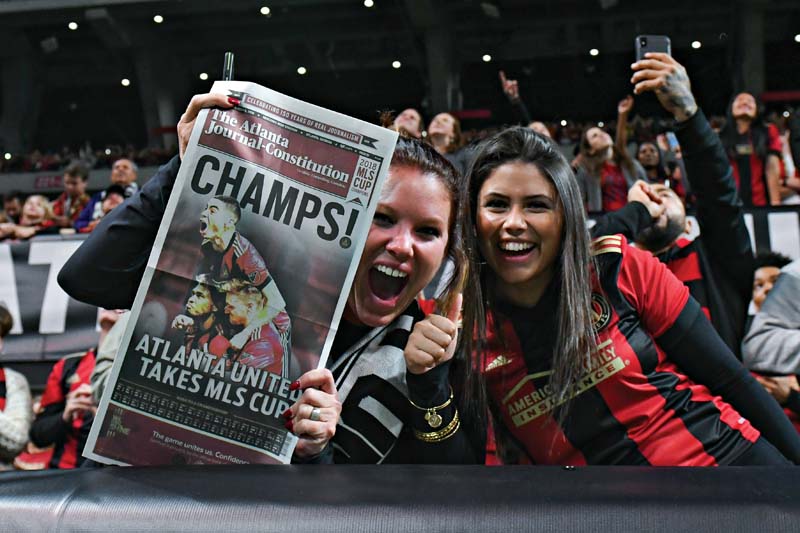
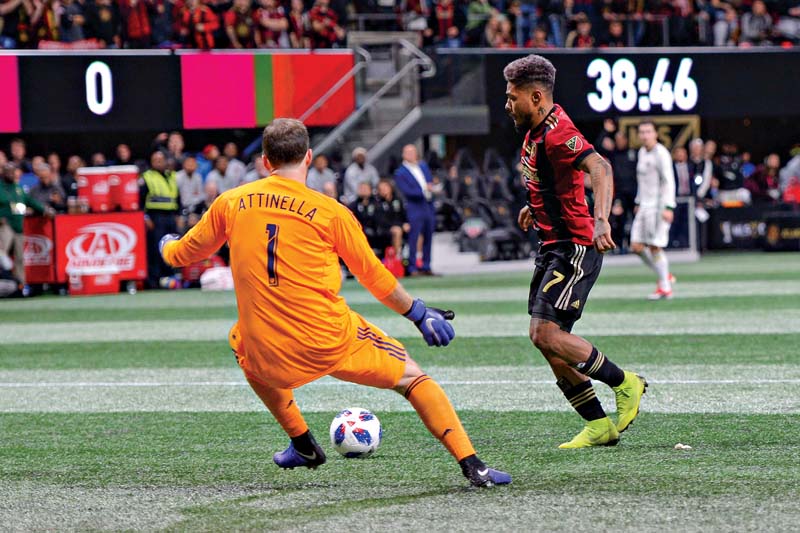
But in America fans expect their teams to move around: loyalty lasts only as long as ‘their’ team stays in their city. It helps too that Atlanta has always been a city of immigrants, a place where outsiders could reinvent themselves. And so this team of Argentinians and Venezuelans, Jamaicans and Paraguayans, Germans and Irish won the hearts of a city known as the centre of black culture in America. Their victory was what the MLS hoped would happen when it was created: a team of young, largely unknown, ethnically diverse players taking home the top prize.
It’s not the first time an Atlanta soccer team has won a trophy. In 1968, the Atlanta Chiefs won the inaugural NASL championship. If that feels like a lifetime ago, it is. That club – the brainchild of the owner of the city’s baseball team – would only last until 1973 before it was dissolved. The average attendance in 1968 was a little over 5,000.
The MLS has (largely) learned from the mistakes NASL made in the 70s and 80s. It has tried to avoid relying on big name superstars looking for a last pay day (hello Lothar Matthaus) and instead tried to nurture a new generation of talent. Indeed the big European clubs now look at the MLS as a credible incubator of young players, something that was inconceivable even a few years ago.
And, if the MLS does eventually compete with the traditional big three American sports, it may just be that a freezing night in Georgia was the catalyst.

